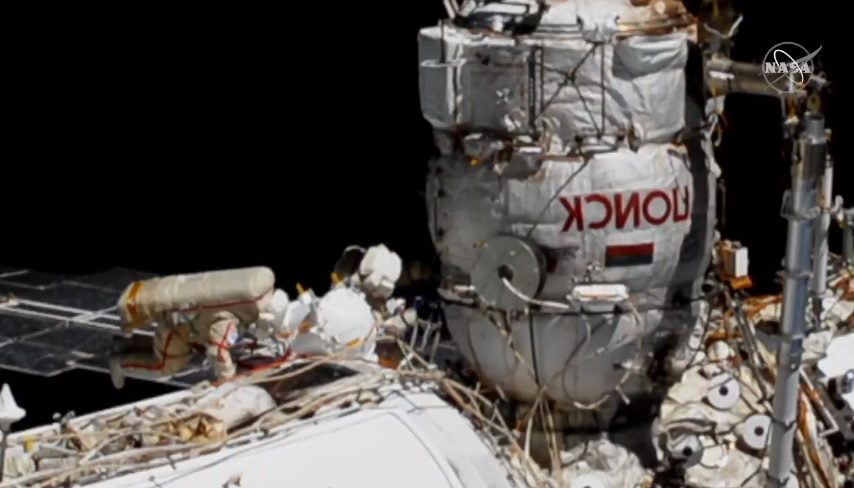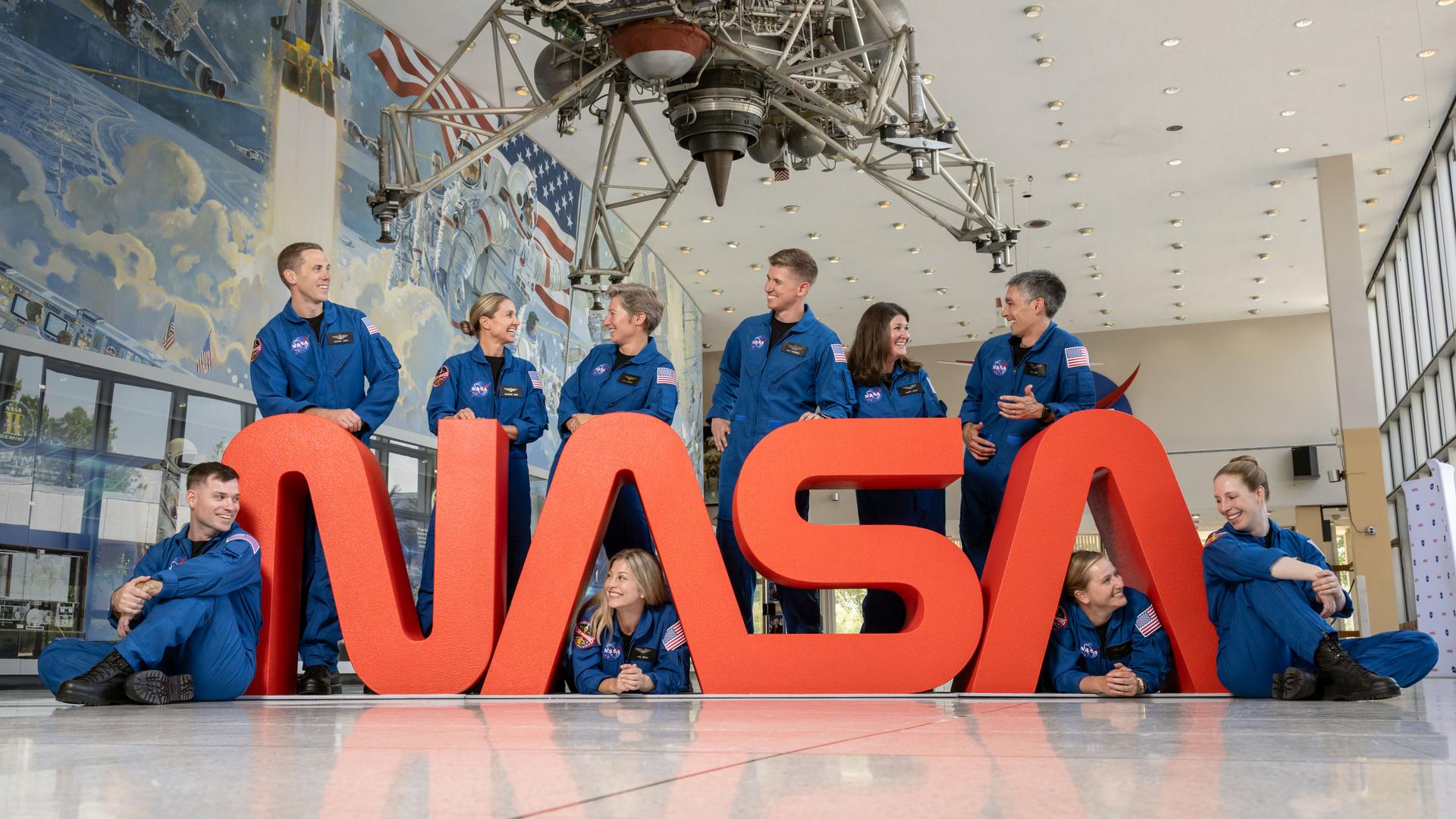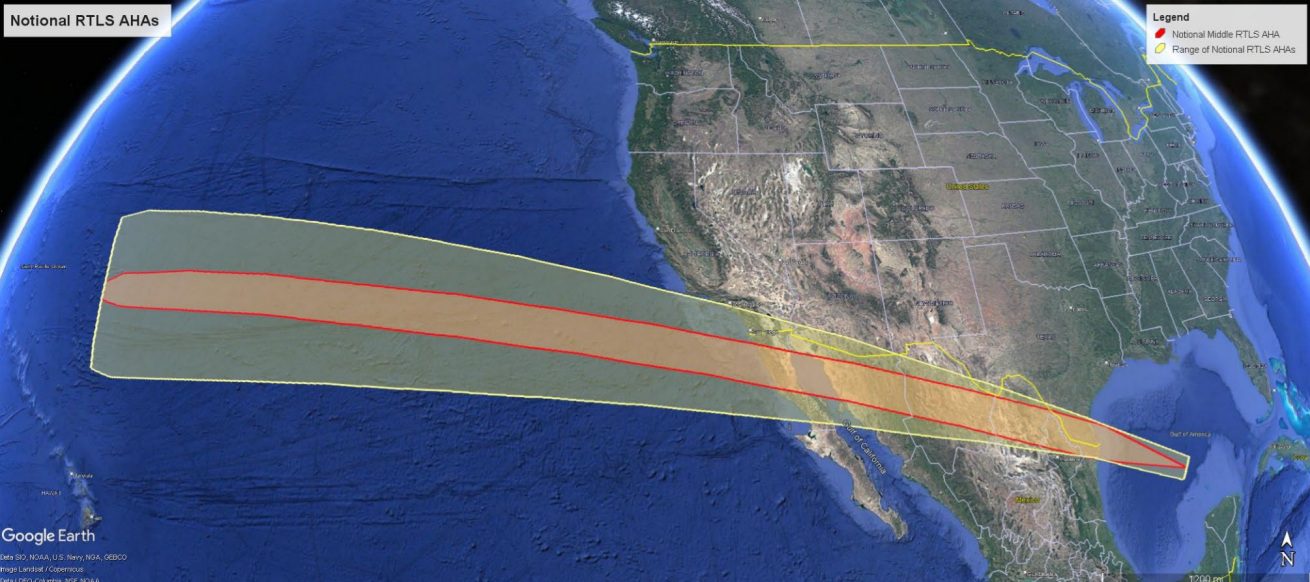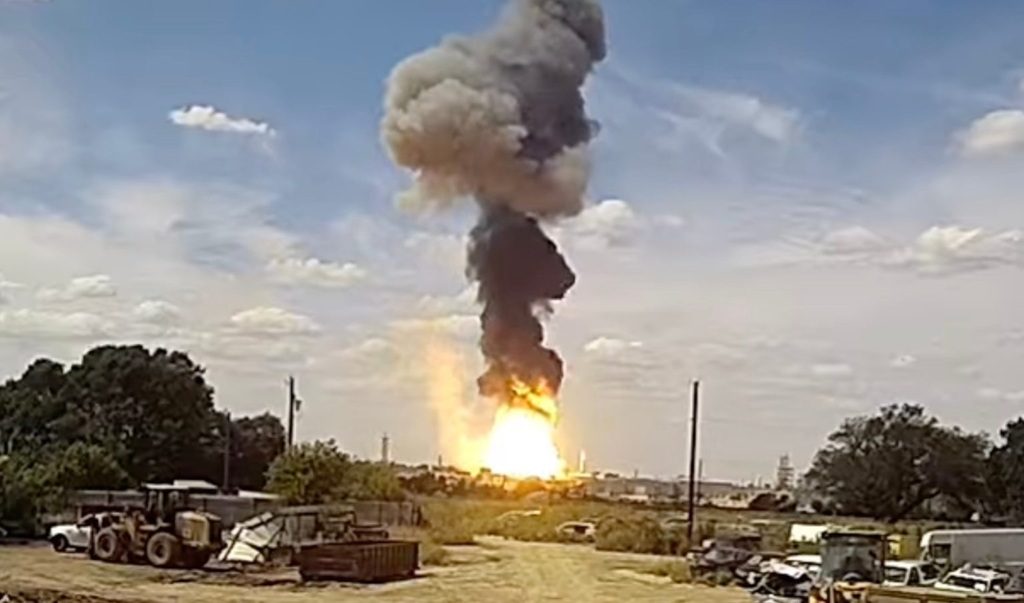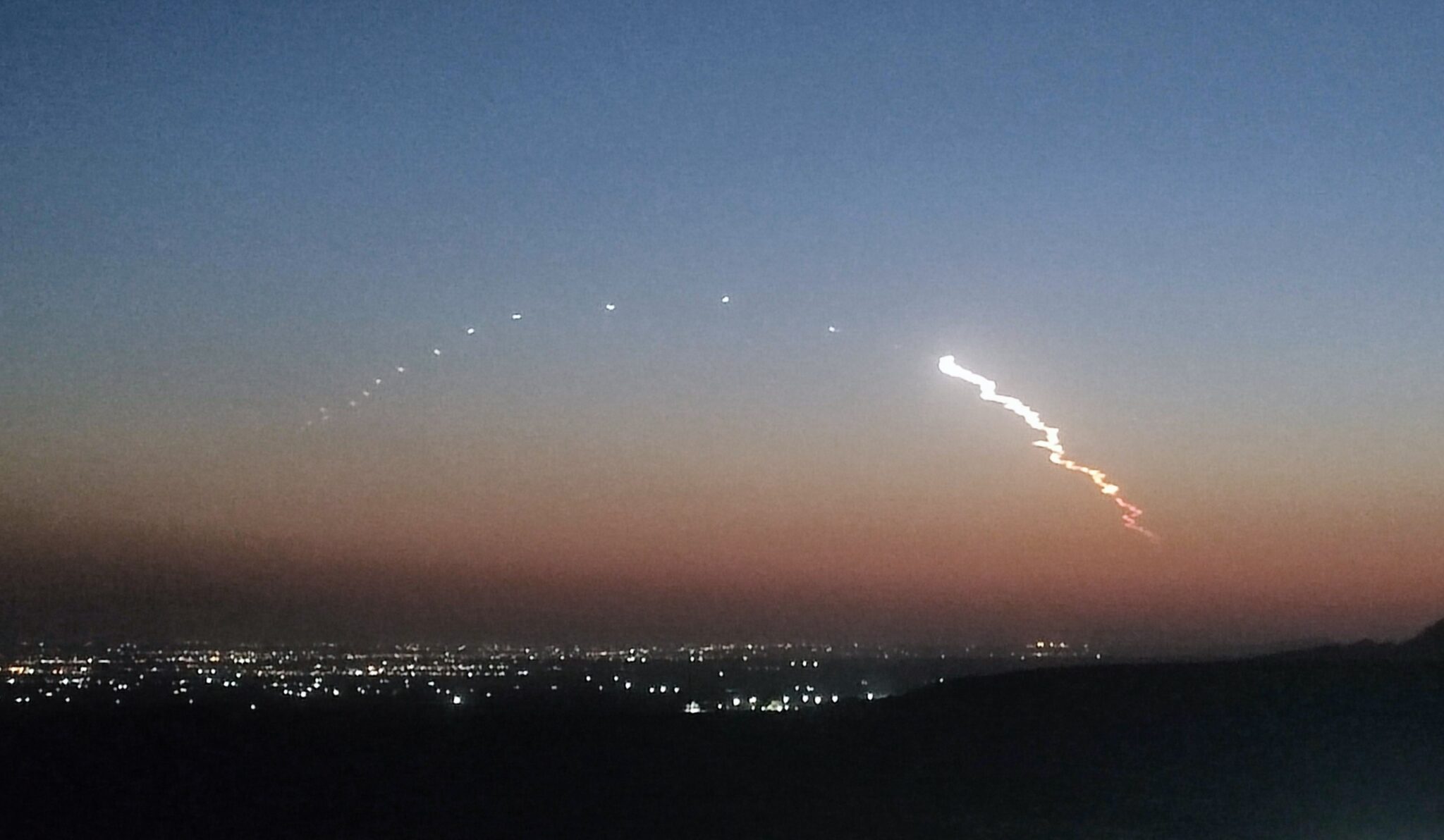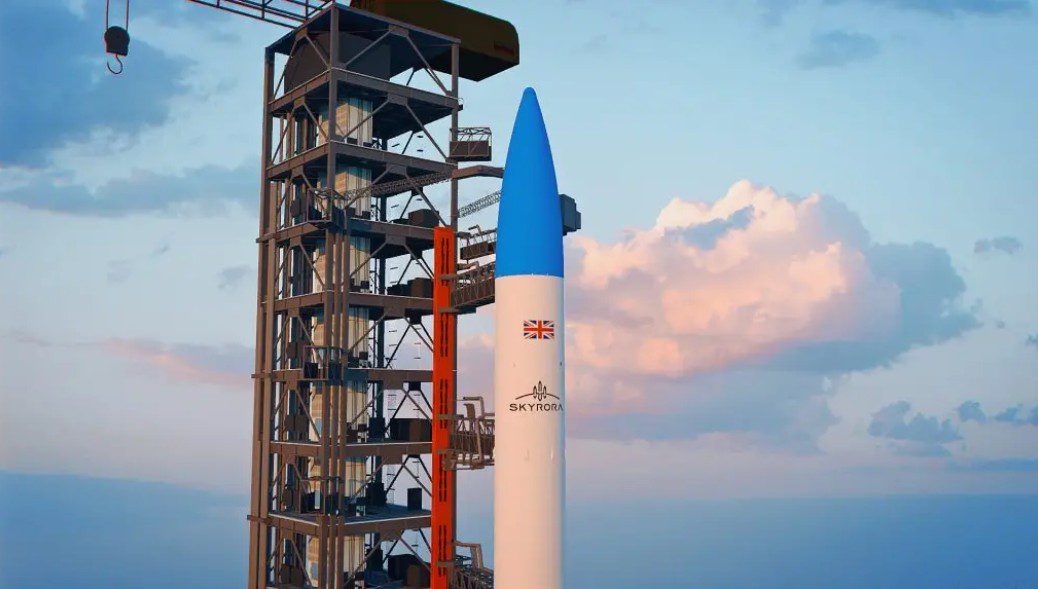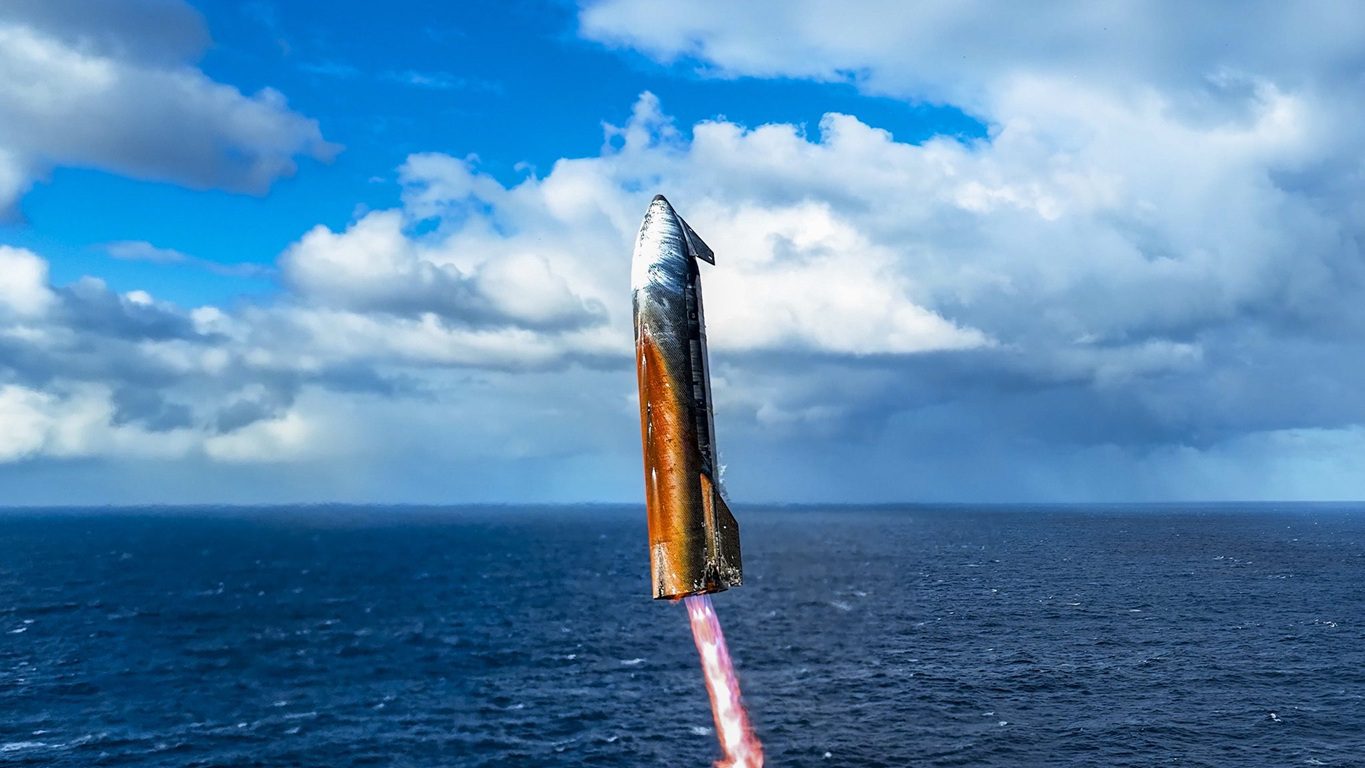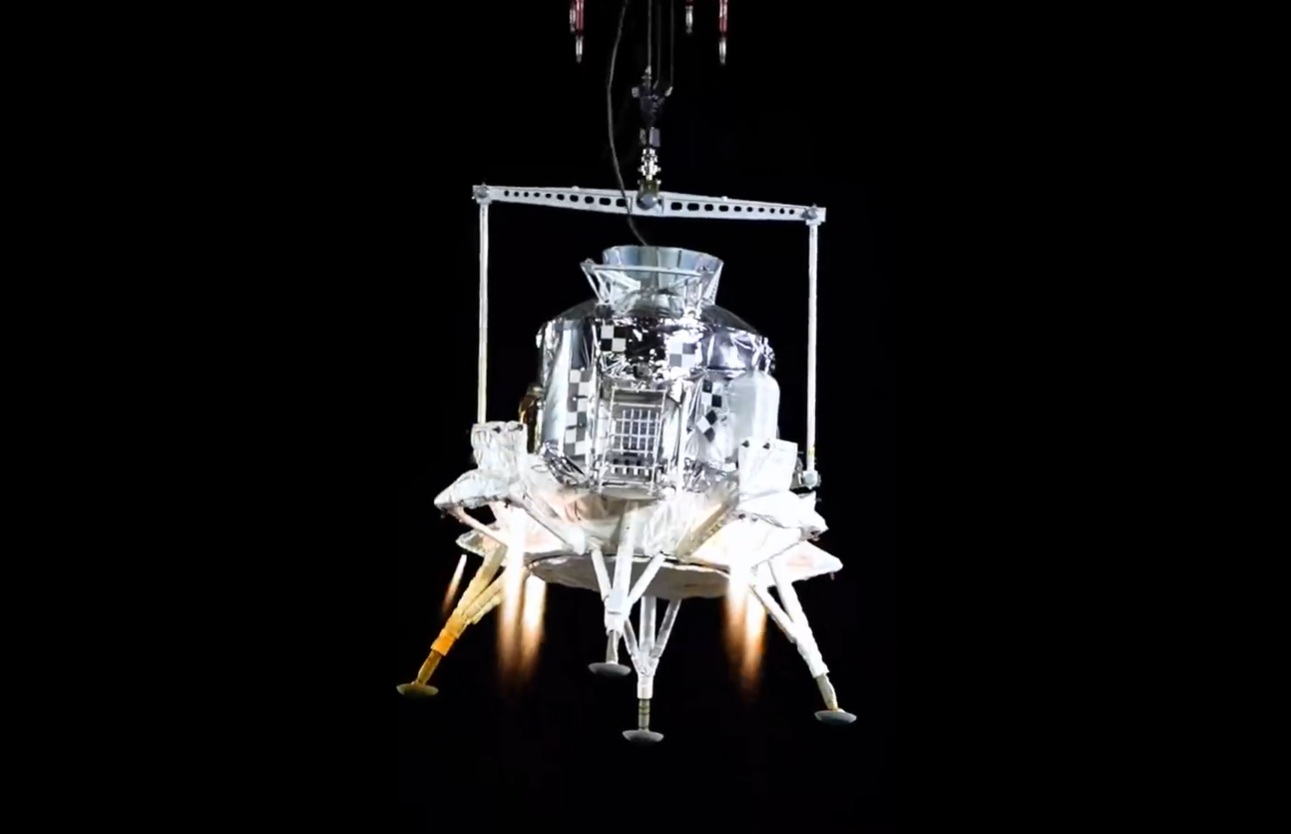After this was achieved the spacewalkers fully emerged from the airlock, with Kud-Sverchov being first out. The first fix to be attempted was to replace a Zarya Flow regulator (No 1) but the container could not be opened and this was abandoned. The Cosmonauts then moved an antenna cable (from the Transit-B antenna) from the Pirs module to the Poisk module. An Imapkt sample plate used to monitor micrometeoroid impacts etc was replaced on the Zvezda module with the old one kept for analysis. The spacewalkers then used towels to “decontaminate” their space suits and the towels used were released into space.
The cosmonauts re-entered the ISS Poisk airlock and the hatch was closed at 2159 GMT. The Russian space agency/conglomerate uses the first hatch opening and the final hatch shutting as its timing length for the spacewalk duration at 6 hours 47 minutes.
Work and timing details from Jonathan McDowell.

